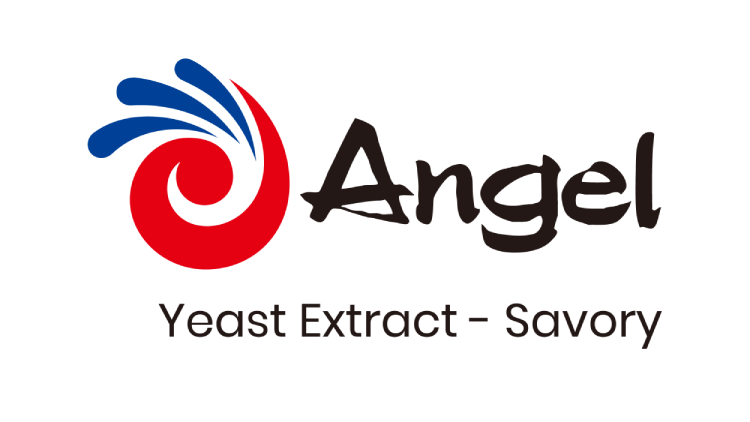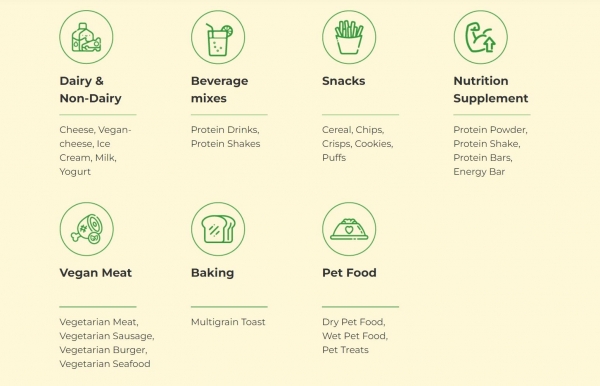Promotional Features
Blending health, taste and sustainability: Is yeast protein the solution?
As the world population continues to expand, the need to produce enough food, especially sustainable protein from non-animal sources, is becoming evermore pressing.
The global population is projected to reach 8.5 billion in 2030 and 9.7 billion by 2050.1 This growth is driving a rapid demand for nutritional protein. As a result, a protein gap is emerging between supply and anticipated demand over the coming years.
As alternative proteins from non-animal sources become more widely commercially available and attractive to consumers, the plant-based sector has experienced rapid growth over recent years. Consumers are turning to plant-based proteins for a variety of reasons spanning health and wellbeing, as well as environmental and ethical factors.
Demand for animal-free protein comes from those following vegetarian and vegan diets, as well as flexitarian consumers, too. Almost one in five (23%) consumers globally now say that they are trying to limit their meat intake, up from 21% in 2020.2
Of those surveyed, 16% said they try to follow a plant-based diet, and 15% are trying to limit their dairy intake, while 4% and 7% are vegans and vegetarians respectively. In fact, Europe is leading the way towards plant-based diets. Almost half of consumers in a pan-European survey said they had reduced their meat consumption.3
Sustainable protein: A key priority
Environmental concerns and global warming is another reason why consumers are eschewing animal proteins in favour of vegan alternatives. Reliance on livestock farming is exacerbating global warming. A 2017 climate analysis found that global agriculture accounts for 11% of all primary sources of greenhouse gas emissions in the EU and that agriculture is the largest contributor to methane emissions globally.4,5 The manure from cattle and the production of raw materials, farming and transportation all produce greenhouse emissions which contribute to climate change.
Consumers today expect manufacturers and brands to demonstrate their commitment to sustainability by making tangible changes within their industries that create a genuine and positive impact to align with their own environmental beliefs and values. According to data from Mintel, 66% of global consumers agree that they “would prefer for companies to reduce their own carbon emissions rather than use ‘carbon offsetting’ programs outside of their own area of business”.6
For many consumers who base their purchasing decisions on sustainability factors and clean ingredient lists, animal-derived proteins can fall short of consumer demands and compromise consumer values around ethical, environmental and health concerns.
How can manufacturers leverage sustainable ingredients in formulations while meeting consumers expectations surrounding taste and texture?
Yeast Protein – a sustainable protein
As sustainability awareness grows and consumers’ perceptions around protein sources evolve, yeast protein is emerging as a sustainable, clean label alternative to animal-derived protein.
As a single cell organism that occurs naturally in nature, yeast is infinitely available and has a low carbon footprint. From a health perspective, yeast proteins have a high nutritional value with a full range of amino acids, and are slow digesting, known to promote satiety while providing the body with a steady and continuous supply of amino acids.
For manufacturers, yeast proteins’ additional credentials include being vegan, non-GMO and allergen-free; furthermore the neutral flavour and clean taste of yeast proteins allow them to replace animal or plant-sourced proteins across a wide range of food and beverage applications including dairy products, such as yogurts and ice cream, and wider applications across nutritional protein products, alternative protein meat products, bakery, snacks and beverages.
Supporting the application of yeast protein
AngeoPro yeast protein by Angel Yeast is a sustainable microbial protein derived from Saccharomyces cerevisiae, known as baker’s or brewer’s yeast, typically used in beer, wine and bread production.
As a high-quality protein source with excellent bioavailability, AngeoPro is a complete protein with all nine essential amino acids. Unlike with the production of plant protein, the microbial fermentation process of yeast is continuous and scalable without dependence on or impact to the climate.
In vegan ice cream and frozen dessert applications, AngeoPro has been shown to improve emulsifying stability and texture and can offer cost advantages over whey protein. In vegan cheese, formulating with AngeoPro can enhance the overall richness and aftertaste, and intensify mature flavours.
At Angel Yeast’s R&D center in Yichang City, Hubei Province in central China, its biotech team is committed to studying and producing quality yeast protein effectively via advanced high-throughput screening to unearth quality strains with high protein content.
Angel Yeast’s production facility can produce 30 tons of yeast every day. Compared with plant and animal-sourced proteins, yeast protein production here can reduce water consumption and carbon footprint and requires less farmland. By increasing manufacturing efficiency and reducing energy consumption, production of yeast protein such as AngeoPro is modelled on circular economy: the industrial wastewater from centrifugal separation is the source of organic fertilizer for crop production and cultivation.
Thanks to its appeal to a range of demographics including vegans, vegetarians and flexitarians, as well as the sports nutrition market and those striving for healthy lifestyles, the benefits of yeast as a sustainable and nutritious protein source are numerous. As feeding a growing global population becomes ever more urgent, yeast is an example of how nature can provide a simple solution to one the world’s most complex problems.
References
1. Global Issues: Population. United Nations.
2. Plant-based Eating and Alternative Proteins. Euromonitor International July 2021.
3. Plant-based foods in Europe: What do consumers want? Smart Protein.
4. Agriculture and food system. European Environment Agency (modified March 2024).
5. Hannah Ritchie H.; Pablo Rosado P.; Roser M. (2020) “Emissions by sector: where do greenhouse gases come from?” Published online at OurWorldInData.org.
6. Mintel. Sustainability & Consumer Behaviours: How to engage your audience. 2023.






